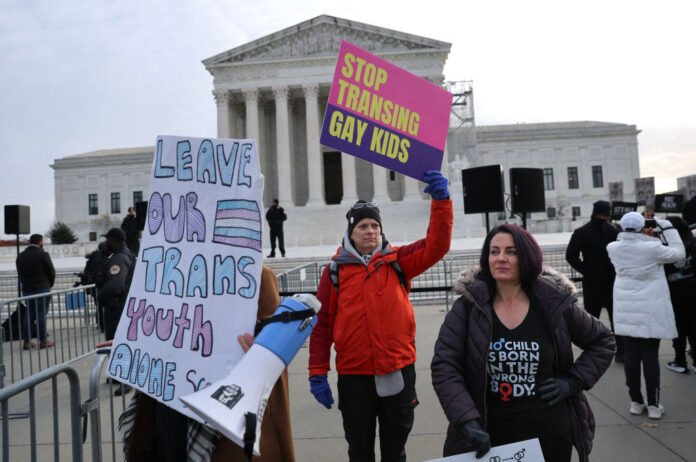Transgender medical care came under sharp national scrutiny as the U.S. Supreme Court upheld Tennessee’s controversial ban on treatments for minors.The 6-3 ruling arrived Wednesday in the high-profile case United States. Skrmetti. At the center was Senate Bill 1, a Tennessee law restricting transgender-related treatments for adolescents.
The law prohibits puberty blockers, hormone therapies, and related procedures for minors seeking gender transition. It also penalizes healthcare providers who continue offering those services.
Writing the majority opinion, Chief Justice John Roberts said the law does not require heightened legal scrutiny. Furthermore, he explained the case involves deeply debated science and policy questions, not protected classes under existing precedent.
Additionally, he noted that courts must not replace the judgment of legislatures on such evolving issues. “We only ensure the law respects the Equal Protection Clause,” Roberts added.
However, Justice Sonia Sotomayor issued a strong dissent. She warned the ruling abandons transgender youth and ignores medical realities. Sotomayor stressed that SB1 targets a vulnerable group based on sex and identity.She argued the law should face higher scrutiny under the Constitution. “This is a retreat from judicial responsibility,” she said. “In sadness, I dissent.”
Meanwhile, the Trump administration had informed the Court in February of its support for the law. It claimed the ban does not violate equal protection rights.
During oral arguments, conservative justices showed little interest in overturning SB1. Justice Samuel Alito questioned the evidence supporting puberty blockers. He said many studies fail to prove that benefits outweigh long-term risks.Meanwhile, Justice Sotomayor pushed back. She cited stories of young people denied access to transgender medical care who experienced mental health crises.
In contrast, Tennessee defended its law by claiming it protects minors and preserves medical ethics. State attorneys said the government has a legitimate interest in regulating adolescent treatment decisions.
The ruling could influence future legal battles over LGBTQ+ protections. Questions about whether sexual orientation qualifies as a protected class still remain unresolved.More than a dozen states have enacted similar laws restricting transgender medical care. This ruling may serve as a model for future litigation and legislation.
As the debate continues, advocates and critics remain deeply divided on how best to handle care for transgender youth.
For more political updates, visit DC Brief.


